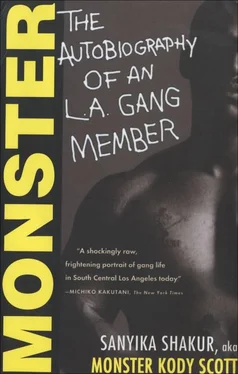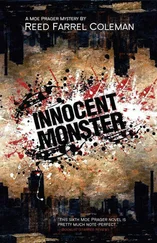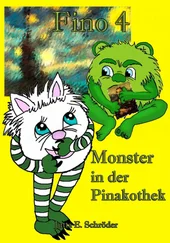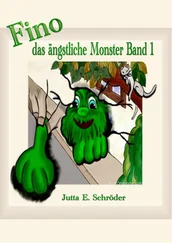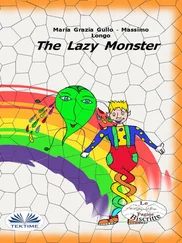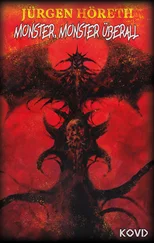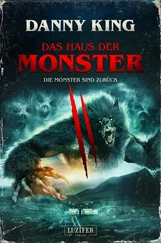Stopping and crouching, temporarily having lost my tail among the rows and aisles of stocked clothing, I heard De trying to explain that it wasn’t us, that they had made a mistake. “Hold it, man, it wasn’t us,” I heard De say in a cracking tone of sincerity and terror.
“You a muthafuckin’ lie, we saw you Blood!”
Crack! “Ahh!” Crack! “All right, man, all—” Crack! “Ahh!”
Terrified, I crouched lower and closed my eyes, hoping they wouldn’t kill De, who was now on the ground and silent. But the beating continued. I felt completely helpless.
“Here go another one!” Crack! “Ahh!” Across the top of my head the heavy axe handle came down. Swoosh! A miss, and in an instant I was on my feet. Crack! “Ahh!” One to the back, as I tried to get past another in the semidarkness.
“Wait, wait!”
“Fuck that wait shit, fool, you didn’t wait when you shot Mike!” Crack! “Ohh.” Crack! “Ahh…” Blackness.
When I came to I was on my stomach, handcuffed. Next to me was De. Both of us were bloody and swollen. Craning my neck to the left, I saw Snoopy and Stone. They, too, looked whipped and soiled.
“Which one of you did the shootin’?” a police officer asked from somewhere behind me.
“Him, the one in the blue overalls and sweat jacket.”
That was me! “What?” I managed to say through fog and loose teeth. “Who, me?”
“Yeah, you, you little crab-ass punk!” (Crab is a disrespectful term used by Bloods against Crips—defacing the enemy.)
For the first time, I noticed her—a girl. Looking up, I brought her into focus. Never seen her in my life.
“You a lie, bitch—” I blurted out and was abruptly cut short by a police boot on the back of my neck.
“Shut up, asshole. Are you sure this is the shooter, ma’am?”
“Yes, yes I’m sure, officer. He was trying to talk to me and then found out who I was with and just pulled a gun and started shooting. I just—”
“Bitch, you lying, I don’t know you, I was—Uuugh!” I was kicked in the side by the police officer who had already smashed my face to the ground.
“One more word, dipshit, and you’ll get another ass whipping.”
I felt it best to remain silent. I was transported to the Seventy-seventh Street Division and booked for attempted murder.
Now I was hoping he wouldn’t die. I was the only one arrested. At the station, I was asked a series of questions, of which I answered none. I was taken to Los Padrinos Juvenile Hall to await court. I was no doubt facing a camp term now, worse than juvenile hall, for the attempted murder, which I hadn’t even had anything to do with. The strict code of the street held me, though, and I said not a word to anyone about who had really shot the Blood.
The Hall (juvenile hall) was another territory to conquer, just like South Central, but all the sets were now face-to-face, bunched together in units of fifty. I met Crips who I had heard about and others whose names I had seen spray-painted on walls. I fought against Bloods whose sets I had never heard of and, of course, against those who were our worst enemies.
I went to trial three months later. The gang turnout was surprising. Along with my family, at least fifteen of my home-boys came. All were in full gear (gear is gang clothes, colors and hats—actually uniforms). On the other side, the Bloods also came in force, in full gear. Tension ran thick through the courtroom as stares of hate were passed back and forth.
I was told after the first day that a shoving and shouting match had taken place in the hallway outside the courtroom. My homeboys had to serve as bodyguards for my family. On my next court date, I was released into the custody of my mother, pending trial proceedings. During my next scheduled court date, three gangs filled the court—the Crips, the Bloods, and the LAPD CRASH unit (Community Resources Against Street Hoodlums).
The atmosphere was tight with rage that ran just below the surface, and this is where I began to grasp the meaning of “low-intensity warfare.” I couldn’t believe how personally the Bloods were taking this. After all, their homie was shot “legally,” that is, within the unspoken but generally known guidelines of gang warfare. He was fired on in a free-fire zone. In fact, this area, as I explained above, was contested. We had gotten numerous reports of Blood sightings. He just happened to be the first caught.
And now here they were, taking the war off the streets and into the courtroom, where neither of us had the experience to win. Blood after Blood testified to my shooting of their home-boy—all lying, of course. The final witness was the victim himself. He was thin and wearing cornrowed braids; his would be the testimony to seal my fate. After the prosecution asked him to convey the events of that day and time, he was asked if he saw the person who had shot him in the courtroom. Silence. And then…
“No, he ain’t the one who shot me.”
“What?” The D.A. couldn’t believe his ears.
Murmurs filled the courtroom as his homies whispered their disbelief at his honesty. Snickers and taunts came from our side. I sat still and just looked at Mike, who stared back without a semblance of hate, but with a sort of remorse for having put me through this.
The judge’s gavel struck wood. “Case dismissed.”
I stood, still looking at Mike, who was dismounting the witness stand.
“Tell Trace,” Mike whispered as he passed me, “that I’ll see him at another time.”
I said nothing, turned, and fell into step with my crew.
That night I led an initiation party into Family ’hood and dropped two bodies. No one was captured.
My relationship with my mother soured continuously as I was drawn deeper and deeper into the streets and further away from home and school. My sixth-grade graduation was my first and last. Actually, it was the last time I ever seriously attended school—for academic purposes. My homeboys became my family—the older ones were father figures. Each time I shot someone, each time I put another gun on the set, each time I successfully recruited a combat soldier, I was congratulated by my older homeboys. (Every gang member is responsible for bringing guns into the gang. We used to break into neighbors’ homes and steal their weapons. Now, with the influx of narcotics and overseas connections, guns are bought by the crate.) When I went home I was cursed for not emptying the trash. Trash? Didn’t Mom know who I was? Apparently not.
De and I continued to campaign hard, but we couldn’t transcend that first stage of reputation. Today, it’s twice as hard to break through because there are so many competing factors: the Crip and Blood communities have grown to astronomical proportions since the seventies, the police have a vast array of laws and techniques to curtail the bangers’ growth, and, of course, there are narcotics—everyone wants to be rich and no one wants to go to war.
On February 14, 1979, when I was fifteen, I was captured for assault and auto theft. I took a car from a man by striking him over the head. Too drunk to drive, I hit every car on the block in my attempt to flee the area. The last and final car I struck was a Cadillac. Once I slammed into the rear of the Cadillac, the bumpers must have gotten caught, because the car I was in would not go into reverse. As I exited the vehicle I was surprised to find practically the whole block chasing me. Actually, it turned out to be just the owners of the cars I had hit. I’m certain the chase closely resembled a lynch mob in pursuit, because the chasers had sticks and baseball bats and were initially all running together in a tightly held group. But as I began to accelerate out of fear and youthful energy, their group dwindled to two.
Читать дальше
